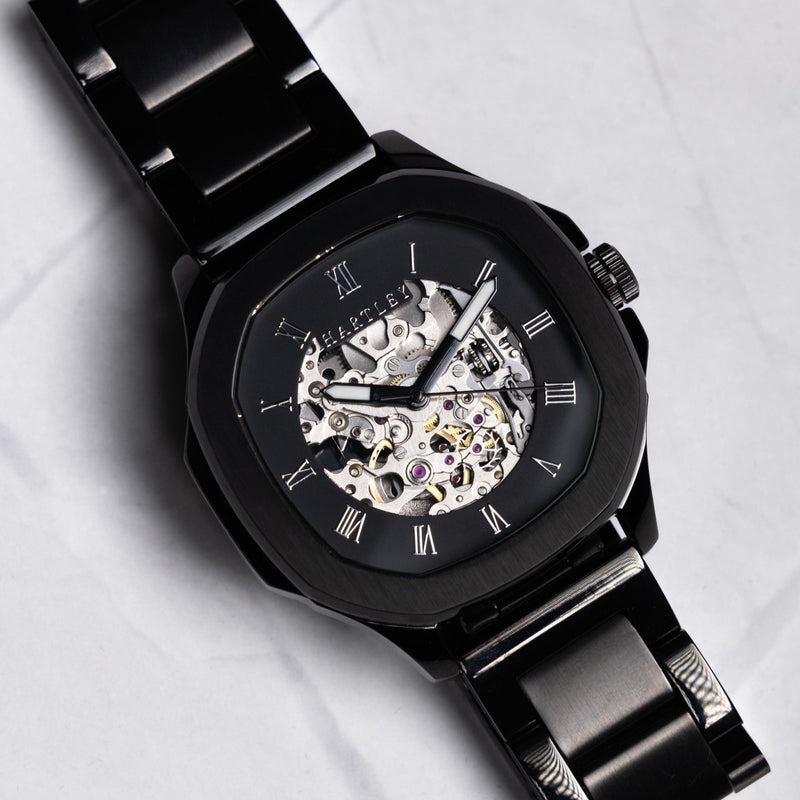When it comes to choosing a watch, one of the most significant factors to consider is the movement inside—the mechanism responsible for keeping time and powering the watch. Swiss and Japanese movements are two of the most renowned types, each with its own characteristics and advantages. At Hartley, we opt for Japanese watch movements due to their precision, reliability, and affordability compared to their Swiss counterparts.
Swiss Watch Movements:
Swiss watch movements have earned a reputation for exceptional craftsmanship and precision. Swiss-made movements are often handcrafted with meticulous attention to detail, utilizing high-quality materials and innovative technology. The Swiss watchmaking tradition is synonymous with luxury and prestige, and Swiss watches are known for their accuracy and longevity. However, Swiss movements come with a higher price tag due to the craftsmanship involved and the prestige of Swiss watchmaking.
Japanese Watch Movements:
Japanese watch movements, on the other hand, are highly regarded for their precision engineering and reliability. Brands like Seiko, Citizen, and Miyota are known for producing high-quality movements that rival Swiss counterparts in terms of accuracy and durability. Japanese movements often incorporate advanced technology and efficient manufacturing processes, allowing for more affordable pricing without compromising on quality.
Key Differences:
-
Accuracy: Both Swiss and Japanese movements are known for their accuracy, often within a few seconds per day. Modern Japanese movements, such as those from Seiko's Grand Seiko line or Citizen's Eco-Drive technology, are particularly renowned for their precision.
-
Price: Swiss watch movements are associated with higher costs due to the labor-intensive craftsmanship and prestige associated with Swiss-made products. Japanese movements offer excellent value for money, providing high accuracy and reliability at a more accessible price point.
-
Heritage vs. Innovation: Swiss movements often emphasize traditional craftsmanship and heritage, whereas Japanese movements are known for incorporating innovative technologies and efficient manufacturing processes.
Why Hartley Chooses Japanese Movements:
At Hartley, we prioritize offering our customers exceptional quality and value. Japanese watch movements provide the perfect balance of precision, reliability, and affordability, allowing us to create timepieces that meet the highest standards without the exorbitant prices associated with Swiss-made watches. Whether you're looking for a stylish quartz watch or a sophisticated automatic timepiece, our collection features watches with Japanese movements that deliver on performance and aesthetics.
Explore our range today and discover the craftsmanship and reliability of Hartley watches powered by Japanese movements.


